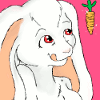Ms. Fenris Reads 'Lovecraft Mythos, New and Classics' 1
3 years ago
So, some months ago I was gifted, and read, a big fatty of a hardcover book called 'Lovecraft Mythos, New and Classics Collection'. Had a bit of the big HPL himself, a touch of the classics that inspired him, a few stories from his buddies that he inspired, and then the bulk given over to modern authors, a few of whom wrote stories whose first look upon the world were in this book.
I read them all I did, and I suppose I'd like to share my thoughts about 'em. Since there were so many, I'll be taking this in parts (and omitting the ones written by Lovecraft himself, as that feels like a topic of another time).
Haita the Shepherd - by Ambrose Bierce
There's a shepherd named Haita, and he has the sherpherd life. He keeps seeing a lady, and every time he gets close to the lady she goes away, and then some dude is like "That lady is happiness, Haita my man. She's so fickle and fleeting."
As a story to get one pumped for cosmic horror this is a big snooze-a-rino, included in this collection only for its historical significance to the 'mythos', that being that the name 'Hastur' was taken from this story. On that merit its interesting, but really only on that merit alone.
Notebook Found in a Deserted House - by Robert Bloch
I haven't read much Robert Bloch beyond his contribution to the mythos, but as the man who wrote 'psycho', he must have some significant writing chops. As far as his works in the mythos go, I often find he reads like 'lovecraft lite'; good if you want more Lovecraft, but a little less verbose than Big L.
This story, however, I found to be rather interesting, as the narrator is not a stuffy academic, but a child, which presents inherently interesting notions as it relates to lovecraftian works. On the one hand cosmic horror is the terror that is found when science, reason and logic all fail, or reveal things you really wish you hadn't known, and for that a child is a questionable narrative vehicle, the whole world being unknown and unfamiliar to children. On the other hand children are ideal protagonists/victims for horror stories, as it removes the option to undertake any of the solutions you the reader/viewer shout at the dim-witted leads, such as 'get out of the house!' or 'for fucks sake, stop regressing your mind back through history via hypnosis, you dumb fuck' (more on that one later in another story). Children are helpless, dependent on those around them, even if those around them are secretly spooky replacements sent by dark-young worshipping druids. It was interesting and novel to read a cthulhu story from a child's perspective, even if that child is perhaps a little too intuitive, logical, and well-written (and cursed by that same affliction that makes so many investigators compelled to pen out their final moments on paper while monsters are battering at the door).
Cthulhu-Seltzer - by Hal Bodner
This one introduced to the anthology one of the questionable flavors that authors have brought to the mythos in the years following the 'golden age' of weird tales: that flavor being that of 'satire'.
While I don't see C'Thulhu-Seltzer as being OUTRIGHT satire, it does follow a man who, for the first chunk of pages, is too disturbed by his digestional troubles to realize that a C'Thulhu-pocalypse is happening (Cthulhu-pocalypses is another category that I mentally concocted to arrange and organize the stories within this collection, so be certain that more will follow). He describes, in intimate detail, how terrible and awful his family is that he must be saddled with, before discovering an emerging elder god in his basement, feeding a relative to it, and soothing the god's own stomach-ache with his home-made seltzer recipe.
A silly idea that could have been more fun I think, but it seemed to me that the constituent components of the story, like the poorly-mixed ingredients of a stew that gives you a stomach-ache - didn't all quite fit together.
Offspring - by Evey Brett
It was full of sick, awful body horror and elder-god breeding, so of course I loved it, almost to the point of jealousy that I hadn't written it. The GOO (the 'Great Old One') of the piece was Yhagni, a slitherer I hadn't heretofore heard of, but apparently has history as another author's creation. I must look up that progenitor story from whence it came...
I read them all I did, and I suppose I'd like to share my thoughts about 'em. Since there were so many, I'll be taking this in parts (and omitting the ones written by Lovecraft himself, as that feels like a topic of another time).
Haita the Shepherd - by Ambrose Bierce
There's a shepherd named Haita, and he has the sherpherd life. He keeps seeing a lady, and every time he gets close to the lady she goes away, and then some dude is like "That lady is happiness, Haita my man. She's so fickle and fleeting."
As a story to get one pumped for cosmic horror this is a big snooze-a-rino, included in this collection only for its historical significance to the 'mythos', that being that the name 'Hastur' was taken from this story. On that merit its interesting, but really only on that merit alone.
Notebook Found in a Deserted House - by Robert Bloch
I haven't read much Robert Bloch beyond his contribution to the mythos, but as the man who wrote 'psycho', he must have some significant writing chops. As far as his works in the mythos go, I often find he reads like 'lovecraft lite'; good if you want more Lovecraft, but a little less verbose than Big L.
This story, however, I found to be rather interesting, as the narrator is not a stuffy academic, but a child, which presents inherently interesting notions as it relates to lovecraftian works. On the one hand cosmic horror is the terror that is found when science, reason and logic all fail, or reveal things you really wish you hadn't known, and for that a child is a questionable narrative vehicle, the whole world being unknown and unfamiliar to children. On the other hand children are ideal protagonists/victims for horror stories, as it removes the option to undertake any of the solutions you the reader/viewer shout at the dim-witted leads, such as 'get out of the house!' or 'for fucks sake, stop regressing your mind back through history via hypnosis, you dumb fuck' (more on that one later in another story). Children are helpless, dependent on those around them, even if those around them are secretly spooky replacements sent by dark-young worshipping druids. It was interesting and novel to read a cthulhu story from a child's perspective, even if that child is perhaps a little too intuitive, logical, and well-written (and cursed by that same affliction that makes so many investigators compelled to pen out their final moments on paper while monsters are battering at the door).
Cthulhu-Seltzer - by Hal Bodner
This one introduced to the anthology one of the questionable flavors that authors have brought to the mythos in the years following the 'golden age' of weird tales: that flavor being that of 'satire'.
While I don't see C'Thulhu-Seltzer as being OUTRIGHT satire, it does follow a man who, for the first chunk of pages, is too disturbed by his digestional troubles to realize that a C'Thulhu-pocalypse is happening (Cthulhu-pocalypses is another category that I mentally concocted to arrange and organize the stories within this collection, so be certain that more will follow). He describes, in intimate detail, how terrible and awful his family is that he must be saddled with, before discovering an emerging elder god in his basement, feeding a relative to it, and soothing the god's own stomach-ache with his home-made seltzer recipe.
A silly idea that could have been more fun I think, but it seemed to me that the constituent components of the story, like the poorly-mixed ingredients of a stew that gives you a stomach-ache - didn't all quite fit together.
Offspring - by Evey Brett
It was full of sick, awful body horror and elder-god breeding, so of course I loved it, almost to the point of jealousy that I hadn't written it. The GOO (the 'Great Old One') of the piece was Yhagni, a slitherer I hadn't heretofore heard of, but apparently has history as another author's creation. I must look up that progenitor story from whence it came...

Shapelessink
~shapelessink
Offspring sounds interesting as hell...

unspoken6
~unspoken6
If you like lovecraftian stories, you should look up the vagrancy horror over on youtube

Leikabunny
~leikabunny
I don't like the satirization of Lovecraft, with the goofy t-shirts and plush Cthulhus and general mockery of cosmic horror. I think the best thing modern Lovecraftian authors bring is a reduction in Howard's purple prose, a wider variety of settings, time periods and horrific concepts, and any acknowledgement whatsoever that women exist (sometimes they're even the protagonists, imagine that!). It's still a difficult line to tread, modernizing the concept and making the characters more relatable while keeping the scary parts serious. I recently read Stephen King's Revival, which got heavily Lovecraftian at the end, but it just didn't click for me, it seemed more weird and silly than scary at the end, which just goes to show how hard it is to pin down the correct feeling- I thought King's It did a much better job at being cosmic horror, despite the weird shit about turtle gods biting tongues and the infamous child sex scene.

ShadyDancer
~shadydancer
I still wonder how he thought he was justified putting that scene in there

Vadrigos
~vadrigos
I do love me some eldritch funtimes.

sasta
~sasta
Sounds great!

 FA+
FA+
